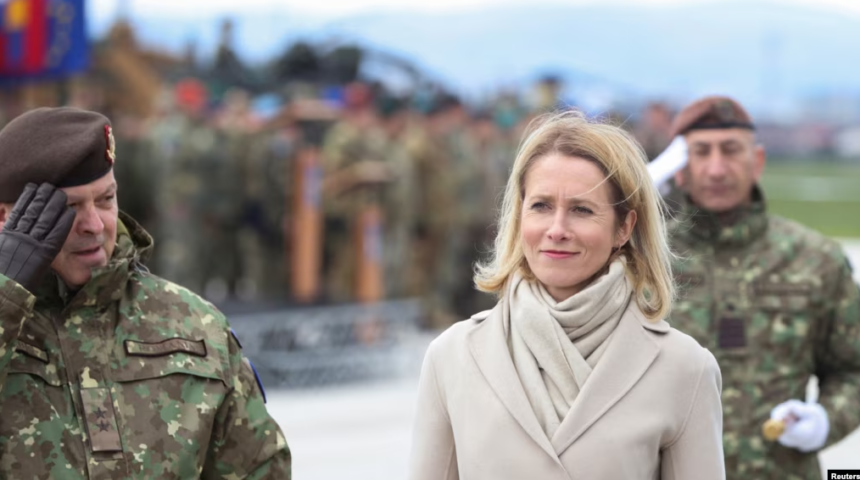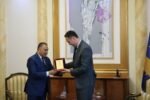Any attempt to divide Bosnia and Herzegovina is unacceptable, said the European Union’s foreign policy chief, Kaja Kallas, on Tuesday during her first visit to Bosnia.
Speaking in Sarajevo, Kallas said that the leadership of Bosnia’s Serb entity, Republika Srpska, “is undermining the country’s constitutional order and threatening the fundamental human rights of all citizens.”
“We will not tolerate any threat to the territorial integrity, sovereignty, and constitutional order of this country,” Kallas said, addressing EUFOR troops, the EU’s military mission in Bosnia, which also has an executive mandate from the United Nations to maintain stability in the country through the use of force.
Leaders of Republika Srpska, particularly its president Milorad Dodik, have been criticized by Western governments for attempting to separate the Serb entity from Bosnia.
In March, the Court of Bosnia and Herzegovina issued national arrest warrants for Dodik, Prime Minister Radovan Višković, and National Assembly Speaker Nenad Stevandić, accusing them of violating Bosnia and Herzegovina’s constitutional order through their actions.
All three have ignored the authorities’ summons for questioning.
Dodik is under sanctions by the United States and the United Kingdom, but the European Union has so far failed to reach a consensus on sanctions against him, mainly due to opposition from its member Hungary.
In March, Republika Srpska passed a draft of a new constitution that would define the entity as a state of the Serb people, grant it the right to self-determination, and establish its own army.
Kallas reminded that the EU deployed hundreds of additional soldiers to Bosnia in March and that EUFOR supports Bosnia’s Armed Forces through training and demining assistance.
“We are concerned for this country and its future. Incendiary rhetoric and attempts to divide are dangerous, unacceptable, and pose a direct threat to Bosnia,” Kallas said.
After meeting with EUFOR commanders, Kallas is scheduled to meet with Bosnia’s tripartite Presidency members, Željka Cvijanović, Denis Bećirović, and Željko Komšić.
Kallas is on a tour of the Western Balkans, which she began with a visit to Montenegro on Monday. Before arriving in Bosnia, she visited Albania on Tuesday morning.
In Tirana, she met with Albania’s President Bajram Begaj and Prime Minister Edi Rama. She said that Albania is a strong partner of the EU and, as a NATO member, is fully aligned with the bloc’s foreign and security policy.
In Podgorica, Kallas met with Prime Minister Milojko Spajić and, in Cetinje, with Montenegro’s President Jakov Milatović.
In Podgorica, Kallas said she was concerned about regional stability and announced it would be discussed during her visit to Sarajevo. She also stated that normalizing relations between Belgrade and Prishtina is important.
During her confirmation hearings for the post of EU foreign policy chief, Kallas had promised to work towards making EU enlargement a reality.
All six Western Balkan countries – except Kosovo – as well as Ukraine, Moldova, Georgia, and Turkey are candidates for EU membership.
Kosovo has applied for EU membership, but its application has not yet been reviewed.
She has not announced a visit to Kosovo or Serbia during her tour of the Balkans this week.







